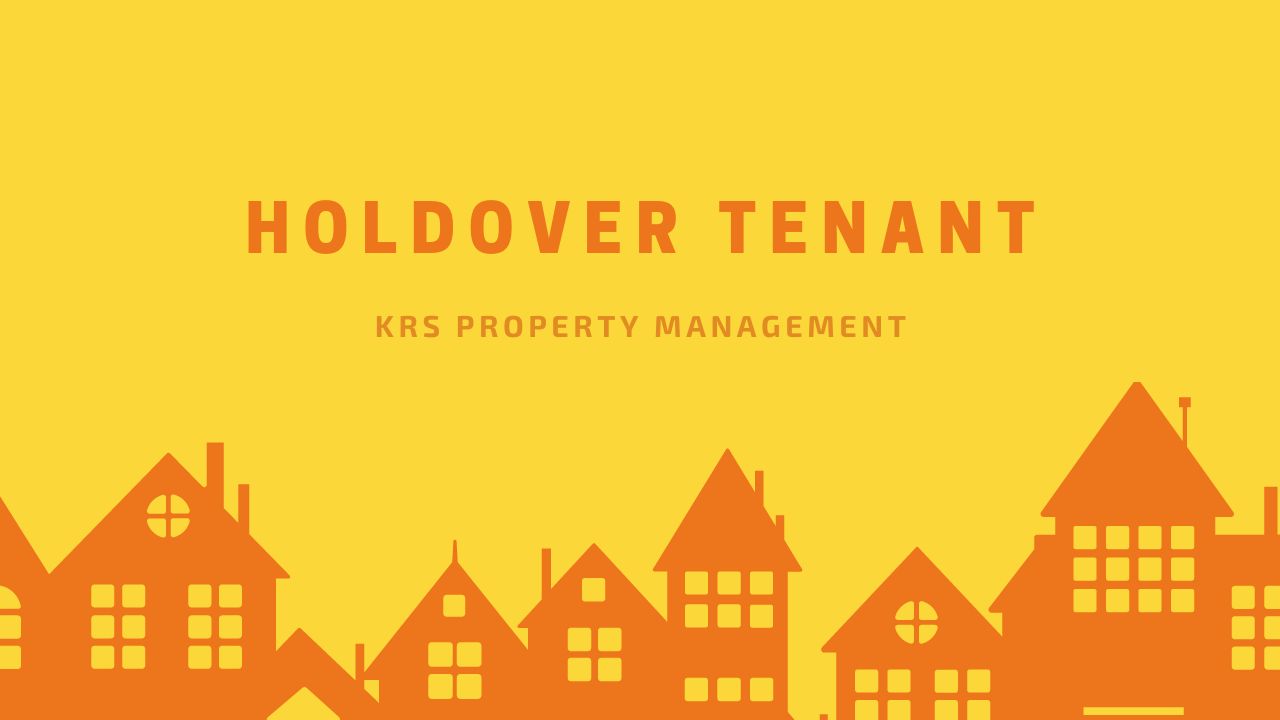
Managing rental properties can be rewarding, but it comes with its fair share of challenges. One such challenge landlords must be prepared to handle is the issue of holdover tenants. These tenants remain in the rental unit after their lease has expired, creating a complex legal situation.
Navigating holdover tenancies requires a comprehensive understanding of landlord-tenant laws, effective communication strategies, and proactive measures to minimize risks and disruptions to your rental business. In this article, we'll delve into the world of holdover tenants, exploring their implications, landlord options, and strategies for prevention and resolution.
What is a Holdover Tenant?
A holdover tenant can arise from various circumstances. In some cases, the tenant may simply overlook or forget the lease expiration date, while in others, they may deliberately choose to remain in the unit without proper authorization. Regardless of the reason, a holdover tenancy is generally considered a month-to-month tenancy, and the landlord has the right to pursue eviction or negotiate a new lease agreement with the tenant.
Landlord Options With Holdover Tenants
When confronted with a holdover tenant situation, landlords renting out property have two main courses of action available:
Keep the Tenant
If the landlord is open to retaining the holdover tenant, they can negotiate a new lease agreement with updated terms and conditions. This option may be favorable if the tenant has been reliable and responsible throughout their previous tenancy. However, it's important to establish clear expectations and ensure that the tenant understands the new lease terms to avoid future misunderstandings.

Evict the Tenant
If the landlord prefers not to continue the tenancy or the holdover tenant refuses to cooperate, the landlord may initiate eviction proceedings. Evicting a holdover tenant typically involves serving a notice to quit or vacate the premises, followed by filing an eviction lawsuit if the tenant fails to comply. Following all legal requirements and procedures specific to your state and local jurisdiction is crucial to ensure a lawful and successful eviction process.
How to Deter Holdover Tenants
Proactive landlords can implement strategies to minimize the likelihood of holdover tenant issues. Taking preventative measures and setting clear expectations from the outset can effectively mitigate the risks associated with holdover tenancies. There are several key approaches landlords can take to deter holdover tenants:
Address Holdover Tenants in the Lease Agreement
One of the most effective ways to deter holdover tenants is to address the issue directly in the lease agreement. Include an unambiguous clause outlining the consequences and penalties for remaining in the rental unit after the lease expires. This clause should specify the landlord's right to initiate eviction proceedings, charge additional fees, or pursue legal remedies if the tenant fails to vacate the premises promptly.
Send a Notice of the Lease's Expiration
As the lease expiration date nears, it's crucial to provide written notice to the tenant well in advance. This notice should remind them of the lease's expiration and the requirement to renew or vacate the premises by the specified date. Follow the notice timeframes and delivery methods outlined in your local landlord-tenant laws.

Clearly state the deadline for renewal or move-out, and consider including a copy of the original lease agreement. Proper documentation of the notice delivery is also advisable to protect yourself in case of disputes. Timely notification sets clear expectations and helps prevent potential holdover situations.
Conduct Regular Property Inspections
Regular property inspections can help identify potential holdover situations early on. During these walk-throughs, observe the tenant's activities and preparations – are they packing and disassembling furniture, or does it appear they may intend to stay beyond the lease term?
These inspections, conducted with proper notice per local laws and the lease agreement, allow you to gauge the tenant's intentions and take proactive action if necessary. Incorporate regular inspections into your management routine to stay ahead of holdover tenancy issues.
Maintain Open Communication
Effective communication is key to preventing misunderstandings and potential holdover situations. Encourage open dialogue with your tenants throughout their tenancy, and make yourself available to address any concerns or inquiries they may have regarding the lease renewal process or their plans.
By fostering a transparent and collaborative relationship, you increase the chances of tenants providing timely notice of their intentions, reducing the likelihood of unexpected holdover tenancies.
Offer Incentives for Timely Move-Out
Sometimes, offering incentives or rewards for tenants who vacate the premises on time can effectively deter holdover situations. Consider providing incentives such as a partial refund of the security deposit, a rent discount for their final month, or a positive reference letter for their next rental application. These incentives motivate tenants to adhere to the lease terms and prioritize a timely move-out.

A partial security deposit refund can be particularly appealing, as it provides tenants with some much-needed funds to cover moving expenses or secure a new rental property. Alternatively, offering a discounted rate for the final month's rent can alleviate some of the financial burdens associated with relocation.
For tenants with a positive tenancy history, providing a glowing reference letter can be invaluable as they search for their next residential rental property. This gesture incentivizes timely departure and helps foster a positive relationship even after the tenancy has ended.
Note that when implementing incentive programs, transparency is key. Clearly outline the specific requirements for earning the incentive and the timeline for receiving it.
Bottom Line
Dealing with holdover tenants can be a complex aspect of property management. The risks associated with holdover tenancies can be effectively mitigated by implementing proactive measures such as comprehensive lease agreements, timely notifications, open communication with tenants, regular property inspections, and incentives for timely move-outs.
At KRS Property Management, we ensure a seamless transition process for landlords and tenants, minimizing the likelihood of holdover situations. Our experienced team is dedicated to creating a smooth rental experience for all parties involved, leveraging our expertise in proactive property management to address the challenges of holdover tenants head-on. Contact us to learn more!






